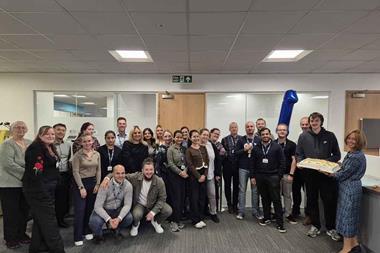tynanbarton · Herbert Smith Freehills/Employee Benefits podcastListen: Ellie Vaughan, head of reward and benefits at Herbert Smith Freehills (HSF), talks about the changes the law firm has made to its reward strategy in the past year.
When the Covid-19 (Coronavirus) pandemic hit, the employer quickly assessed which of its benefits were pandemic-proof, and which needed to be adapted in order to continue to support its employees.
At a glance
Herbert Smith Freehills is an international law firm with just under 5,000 employees worldwide, and around 1700 in the UK. Its job roles include more than 2,000 lawyers and a wide range of business services roles.
Primary business objectives that impact employee benefits
Herbert Smith Freehills values diversity and inclusion and recognises the need to invest in its people to maintain its high-performance culture. For benefits, this means that it needs to regularly review its offer to ensure it continues to be engaging, rewards high performance and meets the needs of the diverse workforce.

Career history
Ellie Vaughan, head of reward and benefits, joined Herbert Smith Freehills as senior reward manager for Europe, Middle East and Africa (Emea) in September 2017. She was previously reward manager at DLA Piper, reward manager at Alzheimer's Society, and reward adviser at Cancer Research UK.
Vaughan describes one of her most proud achievements as providing support for employees going through gender transition on Herbert Smith Freehills private medical insurance (PMI) policy, which was introduced in 2018. The policy includes pelvic surgery and mental health support and is supported by a comprehensive leave policy which includes leave for medical appointments and for those supporting family members who are transitioning.
“This was important to us because we know that diversity and inclusion is critical to our success; our aim is for everyone to feel comfortable being themselves at work and to feel supported by their employer in their journey,” Vaughan explains. “Gender affirmation surgery is very expensive and so many people rely on the NHS. But waiting lists for diagnosis and treatment are incredibly lengthy and it is during these periods that the risk of depression and suicide increases dramatically, so we were keen to look at ways that we could reduce waiting times and the financial burden for employees. We were the first law firm in the UK to offer this to employees.”
















![[FisherA]_portrait_web_crop_newstyle](https://d1m12snq5oxhll.cloudfront.net/Pictures/100x67/9/2/6/108926_fishera_portrait_web_crop_newstyle_714878.jpg)







